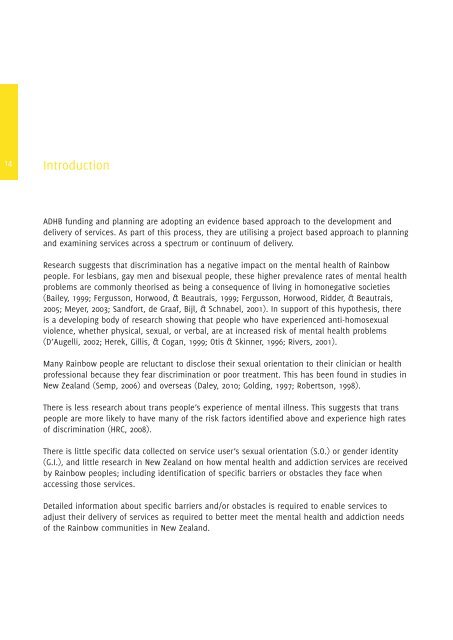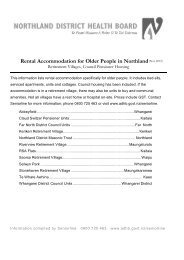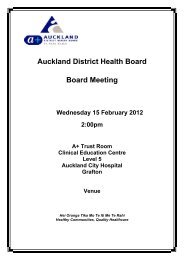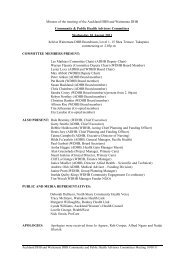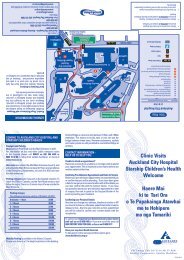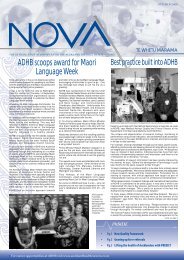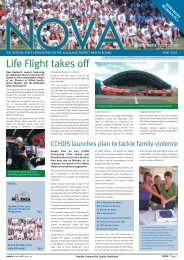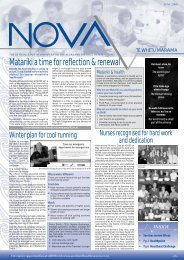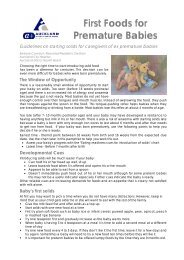Lets talk about sex.... - Auckland District Health Board
Lets talk about sex.... - Auckland District Health Board
Lets talk about sex.... - Auckland District Health Board
You also want an ePaper? Increase the reach of your titles
YUMPU automatically turns print PDFs into web optimized ePapers that Google loves.
14 Introduction<br />
ADHB funding and planning are adopting an evidence based approach to the development and<br />
delivery of services. As part of this process, they are utilising a project based approach to planning<br />
and examining services across a spectrum or continuum of delivery.<br />
Research suggests that discrimination has a negative impact on the mental health of Rainbow<br />
people. For lesbians, gay men and bi<strong>sex</strong>ual people, these higher prevalence rates of mental health<br />
problems are commonly theorised as being a consequence of living in homonegative societies<br />
(Bailey, 1999; Fergusson, Horwood, & Beautrais, 1999; Fergusson, Horwood, Ridder, & Beautrais,<br />
2005; Meyer, 2003; Sandfort, de Graaf, Bijl, & Schnabel, 2001). In support of this hypothesis, there<br />
is a developing body of research showing that people who have experienced anti-homo<strong>sex</strong>ual<br />
violence, whether physical, <strong>sex</strong>ual, or verbal, are at increased risk of mental health problems<br />
(D’Augelli, 2002; Herek, Gillis, & Cogan, 1999; Otis & Skinner, 1996; Rivers, 2001).<br />
Many Rainbow people are reluctant to disclose their <strong>sex</strong>ual orientation to their clinician or health<br />
professional because they fear discrimination or poor treatment. This has been found in studies in<br />
New Zealand (Semp, 2006) and overseas (Daley, 2010; Golding, 1997; Robertson, 1998).<br />
There is less research <strong>about</strong> trans people’s experience of mental illness. This suggests that trans<br />
people are more likely to have many of the risk factors identified above and experience high rates<br />
of discrimination (HRC, 2008).<br />
There is little specific data collected on service user’s <strong>sex</strong>ual orientation (S.O.) or gender identity<br />
(G.I.), and little research in New Zealand on how mental health and addiction services are received<br />
by Rainbow peoples; including identification of specific barriers or obstacles they face when<br />
accessing those services.<br />
Detailed information <strong>about</strong> specific barriers and/or obstacles is required to enable services to<br />
adjust their delivery of services as required to better meet the mental health and addiction needs<br />
of the Rainbow communities in New Zealand.


